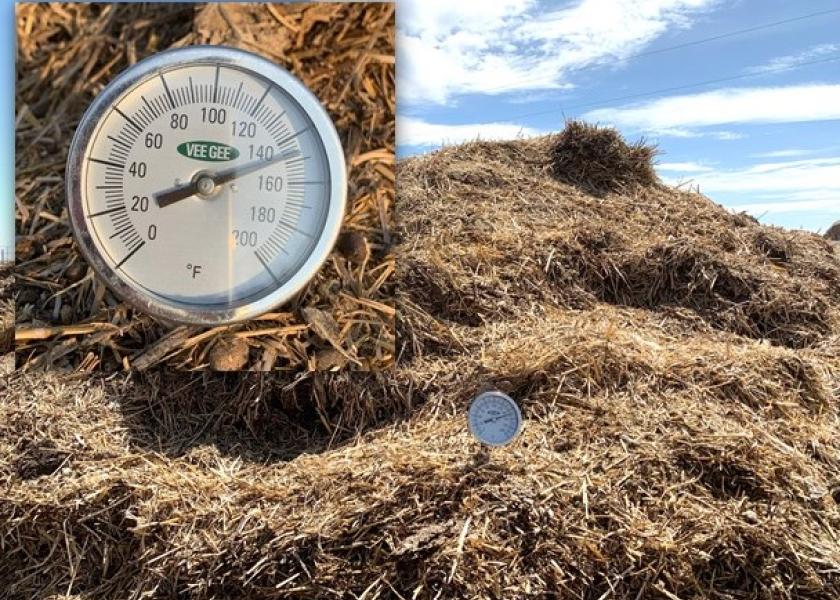Sacrifice Area May Save Grazing Resources

During dry conditions, establishing a sacrifice area may help prevent livestock from overgrazing and damaging a small farm’s grazing resources, a North Dakota State University Extension agent and specialist say.
“Overgrazing can lead to weed overgrowth and ultimately will be time consuming and costly to re-establish grass in the future,” warns Penny Nester, NDSU Extension agriculture and natural resources agent in Kidder County.
A sacrifice area is an area where animals stay at times when pasture grazing is detrimental to land and plants. This area can be in a dry lot pen or a fenced-off area of the pasture. This can be used during times that animals do not need to graze or dormant seasons, drought times or periods of excess moisture.
“The goal of these areas is to sacrifice a small part of your resources to ensure the majority of your land has the rest it needs to stay healthy and productive,” says Mary Keena, Extension livestock environmental management specialist at NDSU’s Carrington Research Extension Center.
To establish a sacrifice area, keep the following factors in mind:
- Location - Where will you store manure in relation to surface and groundwater?
- Soil characteristics and structure - Will the soil type be able to withstand continuous hoof action? Does the site drain water well? Where does water flow after a large rain event?
- Ease of use - Where is the sacrifice area relative to the water source, food storage and manure storage areas?
- Manure collection - Collecting manure and moving it out of the dry lot area will help reduce fly infestations. Where is the manure storage area relative to the sacrifice area? If you think long term, how will you manage the manure storage area? Will you compost the manure or will you spread it raw? If you plan to spread the manure as raw material on a pasture, experts recommend you spread a thin layer and refrain from grazing that area so hot weather can disrupt the parasite life cycle. If you plan to spread the manure, will you do it or will you hire a custom applicator? When hiring a custom applicator, do you have the land to spread the manure on and is your manure storage area large enough for the applicator’s equipment?
- Fly control - How will you manage for external parasites such as flies? Flies lay their eggs in the top few inches of manure and the eggs can hatch every seven days. By keeping your sacrifice area clean and turning manure piles in the storage area weekly, you can compost manure and stay ahead of the fly cycle.
- Space - Does your sacrifice area provide an adequate exercise area?
For those who are experiencing small-farm challenges or would like additional tips and information, call your county NDSU Extension agent for resources and help to keep land healthy and productive. Visit https://www.ag.ndsu.edu/extension/directory/counties for contact information for county agents. A list of North Dakota custom manure applicators, an online composting workshop and the NDSU Extension Horse Management webinar series are available at https://www.ag.ndsu.edu/lem.







